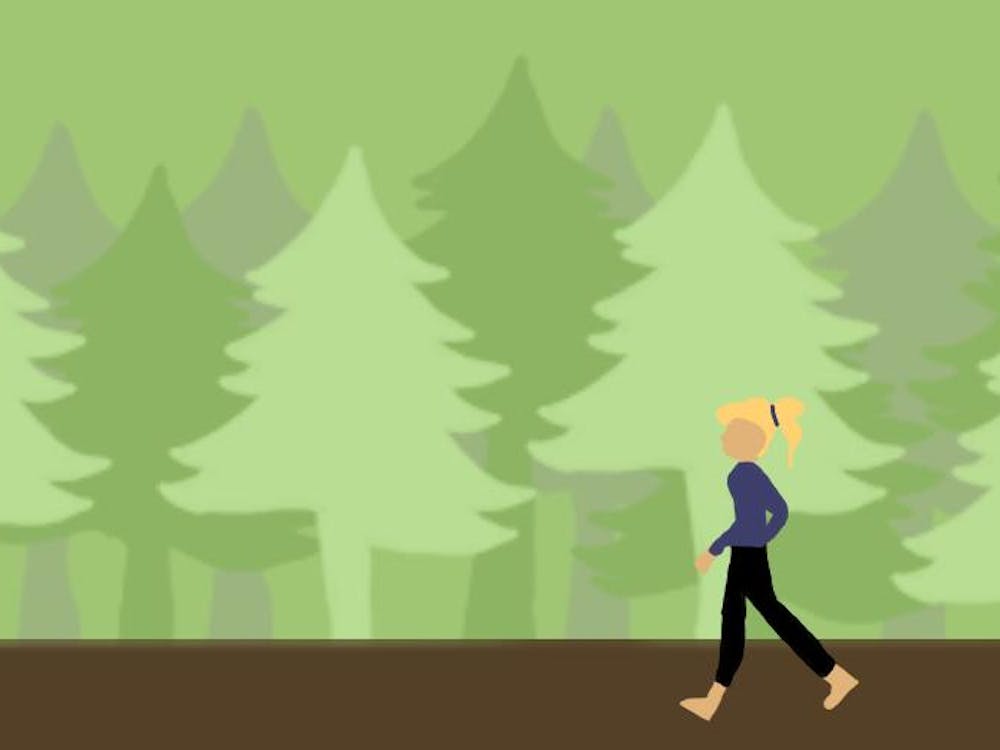TAZEWELL, Va. - I knew I heard something. It was only feet away from the house.
There could be no other explanation: Someone, or something, had to be outside; but what (or who?) could be prowling around at 1 a.m.?
I had to investigate. I ran outside, shining my flashlight in nearly every corner of the back yard, hoping it wasn't a bear that had come down from the nearby mountainside.
|
Afterward, I remembered my dad telling me that one of my neighbors hadn't fixed his fence, and that several of his cattle and goats had escaped.
I live about a 10-minute drive from Tazewell, Va., a small town of about 4,100 people.
I'm back home for summer break, and I'm having the time of my life. Well, sort of.
Tazewell is in the heart of deep southwestern Virginia, distant from nearly every major city in the state, except Roanoke (which isn't really a major city, but I digress).
Tech is the only well-known Virginia college relatively close by, only a two-hour drive away.
Nearly everywhere in this region of the state is rural. People often say that living here is like living in another state. In many ways, both good and bad, this is true.
Life here couldn't be more different than at U.Va.: I work at a small convenience store; many of my friends, even from high school, are far away from here, working summer jobs elsewhere. My life is much simpler, much more laid-back.
Finding stuff to do here is extremely difficult though. To get to the nearest mall, which is pretty much the equivalent of C'ville's Fashion Square Mall, I have to take a 45-minute drive into West Virginia. The nearest interstate, I-77, is about a 30-minute drive away. There also isn't much to do here after, say, eight o'clock at night, so clubbing isn't an option. But we do have the 24-7 Wal-Mart.
To some people (especially desperate, sex-deprived rednecks), the Wal-Mart is like a nightclub. At work, I've even overheard guys talk about heading out to Wal-Mart to "pick up chicks."
Rednecks, although jaded and sometimes bigoted, aren't all bad. And they are, for better or worse, an integral part of our culture. Some are hardworking farmers and miners, men who slave 14 hours a day to take care of their livestock, or to dig coal out of the mines from 1,400 feet below. Education is something they never had time for. Many of them have been working on their farms, most of which have been owned by their families for generations, practically since birth.
And if your car ever breaks down in the middle of nowhere, you can often count on them to help you out.
Also, the prospect of finding a summer job that pays well is about as strong as that of a stripper finding work in a nudist colony. Few businesses, with the exception of restaurants, convenience stores and the like, hire people for temporary work.
To find stuff to do during my free time, I've had to exercise a lot of creativity. Racing high school kids is always fun - my 1995 Oldsmobile can do 0 to 60 in, well, I don't know, but pretty damn fast. But often I just go out to occasional house parties and hang out.
Despite the obvious drawbacks to living here, it's not all that bad. Since it's agrarian, my hometown is picturesque. In the horizon is a beautiful view of mountains wherever you drive.
Summer is comfortably warm - much milder and less humid than in C'ville or Northern Virginia.
The picturesque beauty betrays the pure, pollution-free quality of the area. You can climb a mountain and see virtually the entire horizon if the weather is clear.
Overall, I've been good. My feelings toward this place have are marked with ambivalence: Tazewell has been both refreshing and enervating, exciting and tedious. Call me unoriginal, call me cheesy, but there's no place like home.






